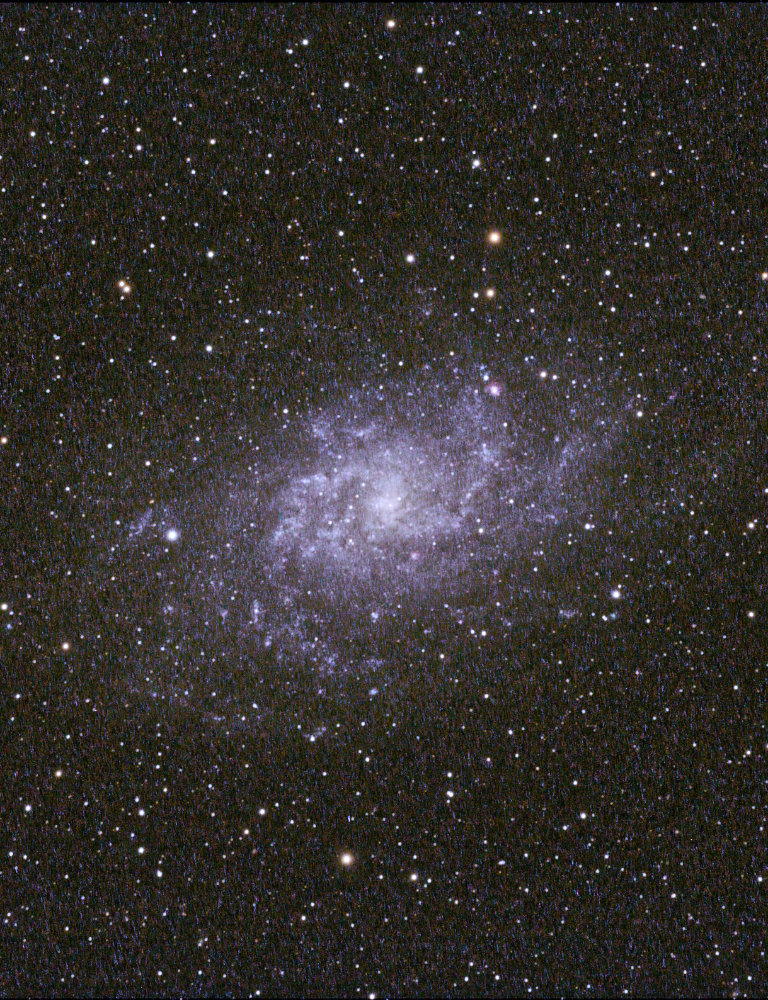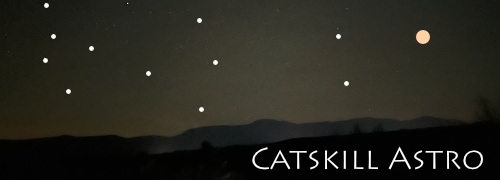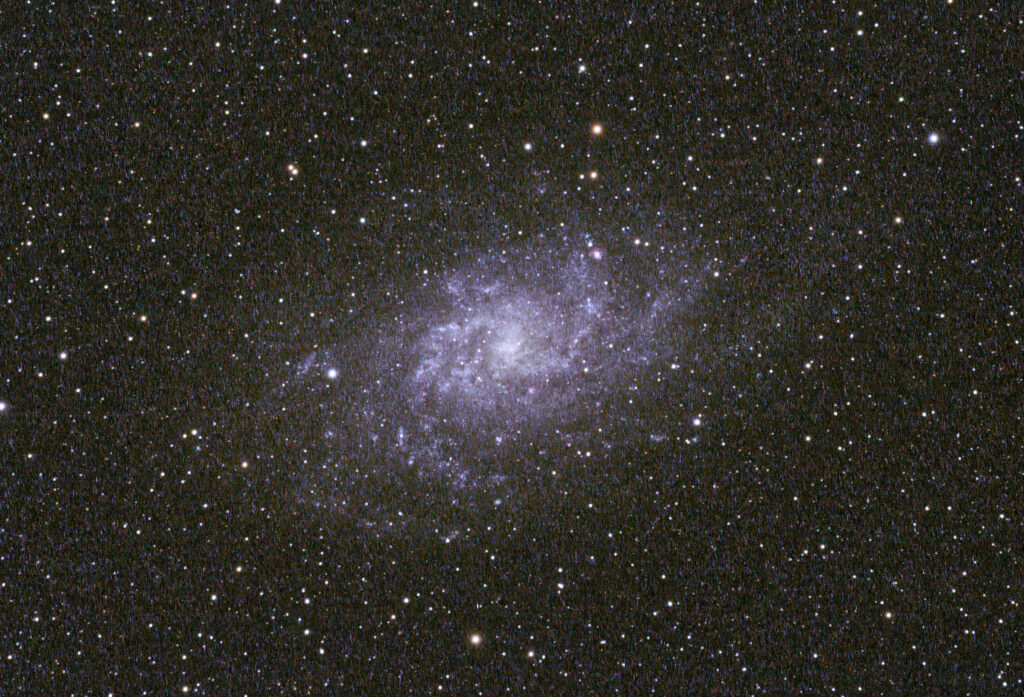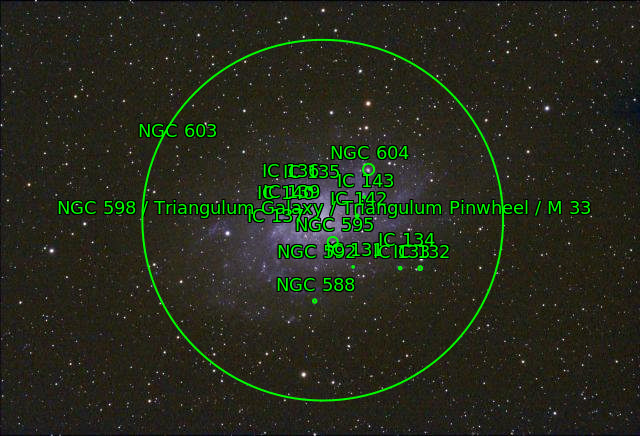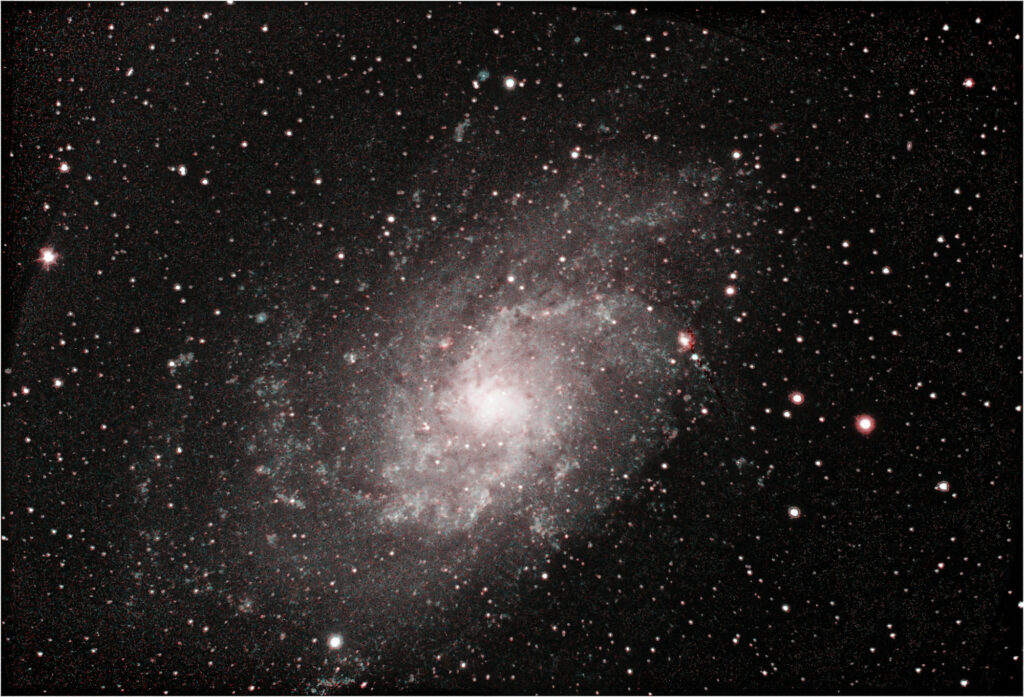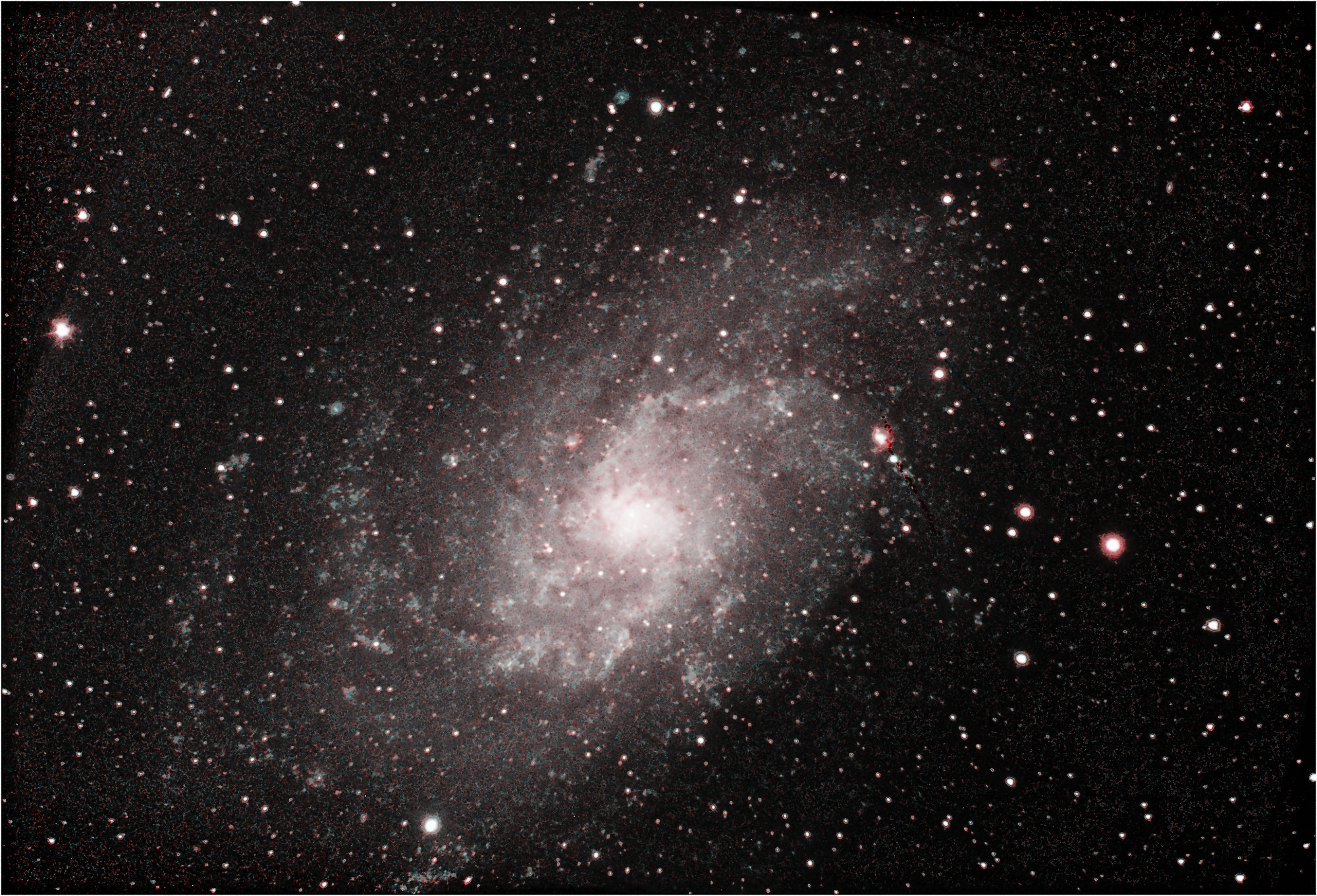| Name | Triangulum Galaxy |
| Designation(s) | M33, NGC 598 |
| Object Type(s) | Galaxy |
| Relevant Catalog(s) | All (Chron), Messier, NGC |
| Obs. Lat/Long | 42° 17', 073° 57' |
| Date and Time Observed | 2023-12-08 04:14:00 |
| Instrument | Askar V, 80mm objective w extender, 600mm |
| Camera | ASI294mc-Pro |
| Image Details | Up is 267.5 degrees E of N. Total integration time was 24m30s. Exposures 15s@305g, UV/IR Cut Filter. Darks subtracted, no flats. Dithered and recentered in SharpCap. No guiding.. |
| Description | Messier recorded independent discovery of M33 three weeks after M31/32 on August 25, 1764. Later scholarship established it had been observed by Giovanni Battista Hodierna, an Italian astronomer, prior to 1654. Presumably the delay is attributed to the time it took to "discover" Triangulum, and then one or two more observations to confirm the nebula was staying fixed. <--> Triangulum is the second-closest major galaxy to the Milky Way after M31. Its apparent magnitude of 5.7 (compared to 3.4 for M31), makes it 8x dimmer and a much more challenging naked eye target. Triangulum was one of the first galaxies I attempted when I started EAA. I've been intrigued by its grand spiral design and that it would fit within the FOV of my first telescope -- an SCT with reducer (which M31 would not). You'll find a couple of other observations in the gallery including 1) a wide-field observation using my Askar V at 600mm in December of 2023 and 2) a heavily processed view taken in late 2022 using my original C9.25 which clearly shows a series of pink-fringed star-forming regions such as NGC 604. |
| Related Observations | M33 (3) NGC598 (2) |
| Catalog Links | |
